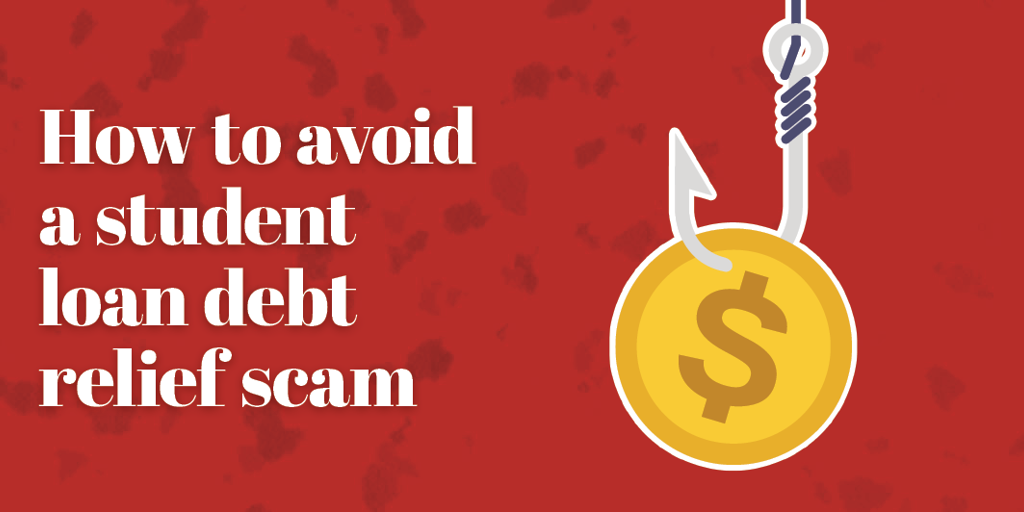


Student Loan Scams
Student loan-forgiveness scams are common, and they are likely to become more prevalent after the recent announcement by President Joe Biden that billions of dollars in federal loan debt will be forgiven. Questions about which borrowers are eligible and how much they can have forgiven are sure to abound, opening the door for scammers to take advantage of the uncertainty.
Scammers will call or email you with the opportunity to wipe out your student loan debt, but what they want in return is a payment for their services and some personal identifying information. You will not receive random emails or phone calls and you will not have to pay a fee to participate in the loan-forgiveness program offered by the government.
It’s important to know that there’s nothing a student loan debt-relief company can do for you that you can’t do for yourself – for free.
Here are some ways to avoid a student loan debt-relief scam, according to the Federal Trade Commission:
- Never pay an up-front fee. It’s illegal for companies to charge you before they help you. If you pay up front to reduce or get rid of your student loan debt, you might not get any help – or your money back.
- Don’t sign up for quick loan forgiveness. Before they know the details of your situation, scammers might say they can get rid of your loans. They might promise a loan forgiveness program – for which most people won’t qualify. Or they might say they’ll wipe out your loans by disputing them. But they can’t get you into a forgiveness program for which you don’t qualify or wipe out your loans.
- Don’t trust a Department of Education seal. Scammers use official-looking names, seals, and logos. They promise special access to repayment plans, new federal loan consolidations, or loan-forgiveness programs. It’s a lie. If you have federal loans, go to the Department of Education directly at StudentAid.gov. If you have private loans, contact your lender directly.
- Don’t be rushed. To get you to act fast, scammers say you could miss qualifying for repayment plans, loan consolidation, or loan-forgiveness programs if you don’t sign up right away. Take your time and check it out.
- Don’t give away your Federal Student Aid (FSA) ID. Some scammers claim they need your FSA ID to help you, but don’t share your FSA ID with anyone. Dishonest people could use that information to get into your account and steal your identity.
What To Do If You Paid a Scammer
Scammers often ask you to pay in ways that make it tough to get your money back. No matter how you paid a scammer, the sooner you act, the better. Learn more about how to get your money back.
If you are the victim of a student-loan scam, report it to the Federal Trade Commission at ReportFraud.ftc.gov or to your state’s attorney general.
Ray Wills is the security officer at F&M Trust.
Recent Articles
Join our e-newsletter
Sign up for our e-newsletter to get new content each month.






















